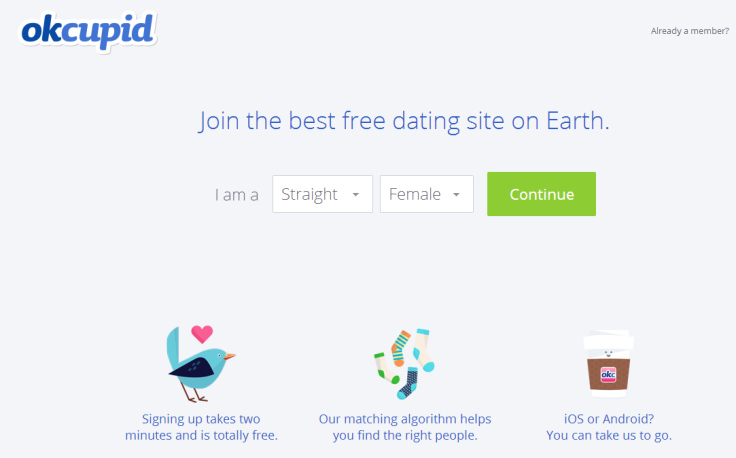OKCupid Admits Deliberately Mismatching Singles in Psychological Experiment

Dating website OKCupid is facing a storm of criticism after its co-founder admitted they have deliberately mismatched some users to "test their technology".
The US matchmaking site said it told couples they were bad matches even when its algorithm showed the opposite.
The psychological study, summarised in a blog post entitled "We Experiment on Human Beings!" written by co-founder Christian Rudder, showed that couples who believe they are a good match made more effort to make a relationship happen.
He wrote: "When we tell people they are a good match, they act as if they are. Even when they should be wrong for each other."
The psychological study showed that, conversely, couples told they were a bad match for each other were unlikely to exchange even four messages.
Justifying using customers as lab-rats in the study, Rudder wrote on the OKCupid blog: "Most ideas are bad. Even good ideas could be better. Experiments are how you sort all this out.
"We noticed recently that people didn't like it when Facebook 'experimented' with their news feed, but guess what everybody: If you use the Internet, you're the subject of hundreds of experiments at any given time, on every site. That's how websites work."
But critics have warned that experimenting on users without their consent could cost the company credibility and loyalty.
Irina Raicu, director of the Internet ethics programme at Santa Clara University in California said: "They are messing with emotions and with communications".
In June, Facebook sparked similar outrage from users when a study revealed that it had manipulated the news feeds of 700,000 users to see whether viewing more positive or more negative posts affected their emotions and posting habits.
It became apparent that Facebook conducts psychological studies on its users on a regular basis.
OKCupid is one of the top US dating sites and has around 30 million users worldwide.
Other experiments OkCupid has tried include "Love Is Blind Day" in January 2013, when the company removed all photographs from the service for seven hours. Fewer people used the service, but more messages were exchanged between users.
© Copyright IBTimes 2025. All rights reserved.





















